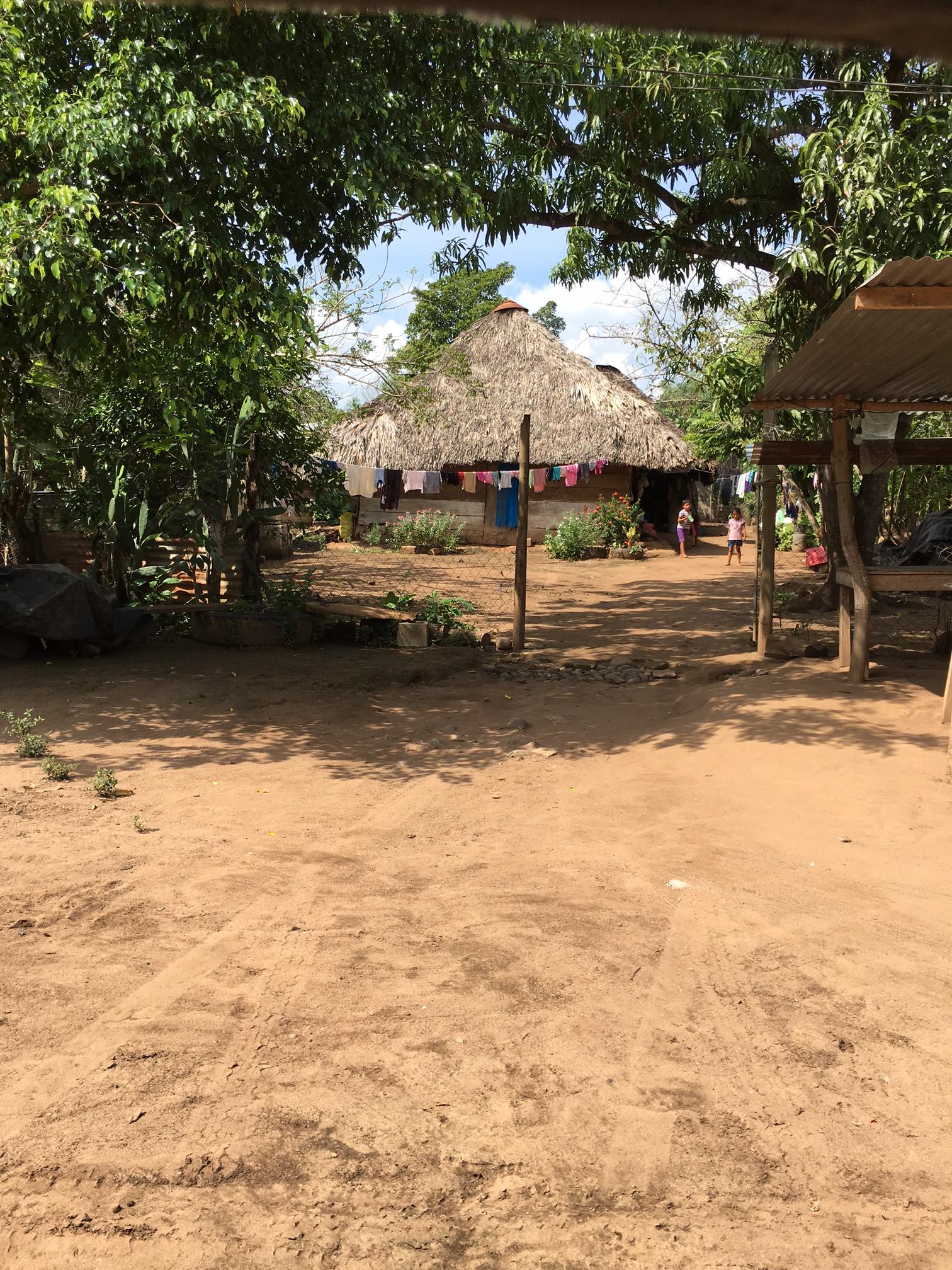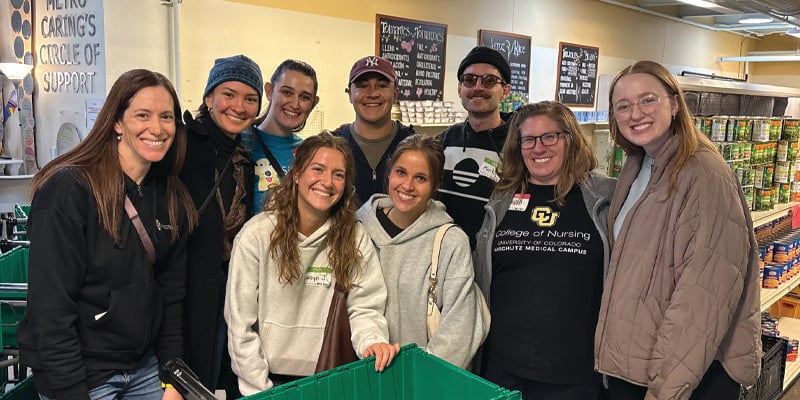The University of Colorado College of Nursing at Anschutz Medical Campus is taking steps to expand its healthcare footprint around the world.
The college sees its role as caring for the community, both locally and globally. To strengthen that role, CU Nursing is focusing on three pillars of global health: service, research, and education. CU Nursing’s global reach expands to five continents – North America, South America, Africa, Asia, and Europe.
“What we know about nursing is that we really see our communities where we live as being globalized,” CU Nursing Global Health Program Director Pamela Prag, CNM, MS, MPH, says. “We know immigration is a huge part of the United States. It’s also a part of some healthcare challenges. We feel it’s imperative that when our students leave CU Nursing they can care for people in a culturally sensitive way, and some of those people live in our communities.”
Getting Faculty Involved in Research
The research aspect of CU’s role in global health is encouraging faculty to conduct research. Associate Professor Christina Sun, PhD, MS, is a Fulbright Scholar and is conducting research in Taiwan and Botswana.
Her research is an LGBTQ+ global health project, looking at the similarities and differences in legal approaches, policies, and history around LGBTQ+ rights in both countries. She wants to learn how these countries are making strides to protect health – and how that translates to providing culturally sensitive care in the U.S.
CU Nursing's Global Reach
|
“When I think about this project, I think it’s going to help increase insights into diversity of experiences and priorities for LGBTQ+ rights,” Sun says. “It can help assess and address this relationship between public sentiment and government policy. Sometimes you're stuck with the chicken and egg question, what came first? Did public sentiment change? Has there been a change in government policy? Or is it the other way around? What are mechanisms involved in both?”
“We are such a global society now, and our research needs to dovetail,” Prag says. “Places like Taiwan and Botswana, and so many other countries, are connected in a way that allows us to collaborate.”
CU Nursing is also considering partnering with Hong Kong University for faculty research projects.
“There’s such a richness when faculty from different geographic areas can look at projects and things they’re working on and collaborate across the globe,” Prag says.
Expanding the Role of Advanced Practice Nurses
CU Nursing is working in Haiti, Switzerland, and Chile to expand the role of an Advanced Practice Registered Nurse (APRN).
Prag says these countries are interested in how their universities should develop curriculum around the role of an APRN. CU Nursing is providing guidance on curriculum, and in Prag’s case, she is an adjunct faculty member at the State University of Haiti.
“What we’ve been doing (in Haiti) is helping teach some of their courses virtually to their family nurse practitioners,” Prag says. “Haiti is one of the few countries in the world whose Ministry of Health has recognized the role of an Advanced Practice Nurse. So we’re helping them teach their curriculum and providing capacity building through this partnership.”
CU Nursing has collaborated with Bern University of Applied Sciences in Switzerland for a Nurse Practitioner (NP) program to address a shortage of healthcare professionals in that country. Prag says this year, CU Nursing will host its first international student from Switzerland. The student will observe what the role of an NP looks like in the U.S.
“The role of an NP is very different here compared to in Switzerland,” Prag says. “The birthplace of Nurse Practitioners is at CU Nursing, so we’re very honored and very excited.”
Prag also says the University of Hong Kong would also like to send nurses to the college to observe nursing roles. CU Nursing already has an annual virtual exchange program with Yamagata Prefectural University of Health Sciences in Japan.
Nursing Immersion in Guatemala
CU Nursing students get an opportunity for a two-week nursing immersion experience at the Trifinio clinic in Guatemala. CU will send six groups of students in 2024.
“What the students in Guatemala are seeing is the outstanding ability of nurses there to lead their communities to improved health,” Prag says. “The nurses we’re partnering with in Guatemala are remarkable leaders and are very influential in their communities. They’re providing outstanding care and our students have the privilege to watch that unfold.”

CU Nursing offers a two-week nursing immersion experience in Guatemala. |
Students provide primary care in a rural area of southwestern Guatemala. They are responsible for seeing and diagnosing patients, giving reports to physicians, and documenting medical reports (both orally and written) in Spanish. Students split their time between a clinic and going into the community to give at-home care.
Shannon Pirrie, DNP, CNM, is the specialty director of CU Nursing’s Nurse-Midwife program. She went to Guatemala twice as part of an educational fellowship in 2016 and 2017. She says the fellowship changed how she viewed healthcare in Colorado and abroad.
“Any global health experience helps you realize the commonalities and differences in healthcare throughout the world,” Pirrie says. “It’s pretty eye-opening to see the work folks do in other countries with much less resources and education than we have.”
Students learn strategies to advocate on behalf of patients and families to challenge policies that create health disparities. Prag says it’s important for students to understand how to care for underserved populations when they return to campus, since Colorado’s healthcare system is seeing a large influx of patients from South America.
“We feel like if we are sending graduates into communities like Aurora, Denver, and other places around the state and country, students really need to understand, appreciate, and respect the richness of that culture,” Prag says.
A Long-Term Investment
Another aspect of the college’s commitment to global health is service. DNP Program Assistant Dean and Associate Professor Laura Rosenthal, DNP, ACNP, FAANP, partners with Project Cure on trips to Côte d'Ivoire, a country in West Africa. Rosenthal has been going since 2019 (including a trip in 2020 that was shortened because of the COVID-19 pandemic).
“Every time we return, we assess what we need, what medications should we have, what treatments we should be doing or not doing, and how we are promoting their health and well-being,” Rosenthal says.
She and her team treat patients in a rural area where the nearest hospital is 90 minutes away. They provide menstrual kits for girls, test for malaria, screen for STIs, hepatitis, and HIV, and offer medications.
“We really try and partner with the local people and when we have medications that are left, we hand those over to the local physicians and the nurse-midwives to work with patients so that they can continue to dose those medications,” Rosenthal says.
There are hopes to eventually bring nursing students on future trips.
“Global health work at CU Nursing is not about going to exotic places,” Prag says. “It’s about building partnerships with our colleagues that are working in other countries. It’s also about translating the knowledge that our students receive when they go on these experiences into care they give to our patients at our local hospitals.”
Prag says CU Nursing’s role in global health is also not about “dropping in and dropping out”. Instead, it’s a long-term opportunity to understand how healthcare (and nursing education) is done in other countries, how nursing is provided, and how CU Nursing can help build nursing infrastructure.
“We want to expand because nursing around the world is essential to the health and well-being of communities,” she says. “If we think carefully and intentionally about how we build these partnerships, then it can really impact communities, both our community and theirs.”



